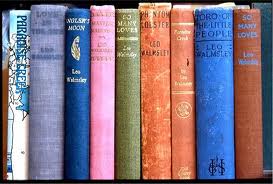Fiction
Verdict: Read it
You'll be hard pressed to find me un-supportive of Jhumpa Lahiri. This book is not an exception.
The novel traces two brothers through their paths, divergent from Tolly Gunge Calcutta. Each has his own path - and they are very different - that traverse idiologies, countries, and even relationships. What Lahiri really explores here are personal choices and priorities. For anyone that has had a sibling that they love but is opposite of themselves, this will ring true.
Lahiri recognizes that nurture will be the same for siblings (although it's not necessarily the same experience) , but people will take different paths and decide that different things are important.
I also found it curious that Lahiri recognized the wasteland that is widow-hood and remarriage. The protagonist marries his brother's widow, and it becomes increasingly clear that while they have shared experiences, they do not belong together.
In a surprising rally, this book becomes a feminist anthem. The female uses her husband's brother to transition her life into something meaningful, but not permanent.
In a side curiosity, the author explores Naxalism and how the personal experience influences the family.
This is a book so packed with experiences you almost cringe at what comes next, but you know it will keep going and that each experience will be valuable.
Verdict: Definitely read it. It's a powerhouse.
~Becky~
Verdict: Read it
You'll be hard pressed to find me un-supportive of Jhumpa Lahiri. This book is not an exception.
The novel traces two brothers through their paths, divergent from Tolly Gunge Calcutta. Each has his own path - and they are very different - that traverse idiologies, countries, and even relationships. What Lahiri really explores here are personal choices and priorities. For anyone that has had a sibling that they love but is opposite of themselves, this will ring true.
Lahiri recognizes that nurture will be the same for siblings (although it's not necessarily the same experience) , but people will take different paths and decide that different things are important.
I also found it curious that Lahiri recognized the wasteland that is widow-hood and remarriage. The protagonist marries his brother's widow, and it becomes increasingly clear that while they have shared experiences, they do not belong together.
In a surprising rally, this book becomes a feminist anthem. The female uses her husband's brother to transition her life into something meaningful, but not permanent.
In a side curiosity, the author explores Naxalism and how the personal experience influences the family.
This is a book so packed with experiences you almost cringe at what comes next, but you know it will keep going and that each experience will be valuable.
Verdict: Definitely read it. It's a powerhouse.
~Becky~

No comments:
Post a Comment